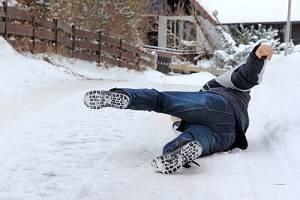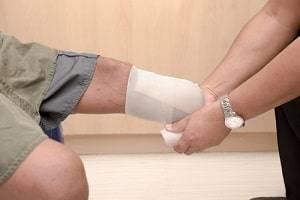Recent Blog Posts
Can I File Both a Third-Party and a Workers’ Compensation Claim?

Work-related injuries can happen for countless reasons. Some injuries are caused during a singular work accident while other injuries occur from repetitive movements over time. Falling from a great height, being struck by falling objects, equipment-related injuries, and other workplace injuries can lead to massive medical bills and other financial harm. If you or a loved one have suffered a work injury, you may be curious about your legal rights. You may already know that you are entitled to workers’ compensation for certain work injuries, but you may not know much about bringing a claim against a third party. If your work injury was caused by the negligent or wrongful actions of a party other than your employer, you may be able to sue that party for damages.
Bringing a Personal Injury Claim for a Work Accident
Can I Receive Workers’ Compensation for a Repetitive Motion Injury?

Most Illinois employers are required to carry workers’ compensation insurance. The purpose of this insurance is to provide financial compensation for employees who are injured on the job. However, proving that an injury was sustained at work and successfully recovering compensation through a workers’ comp claim is often more challenging with repetitive motion injuries (RMI). The source of these injuries is often more difficult to pinpoint and some insurers and employers use this as an excuse to downplay the severity of the injuries or claim that the injury predated employment. If you have sustained a repetitive motion injury at work, you should know your rights under Illinois workers’ compensation laws.
What Are Repetitive Strain Injuries?
If a worker falls from a ladder and breaks his or her leg at work, there is little question as to how the injury occurs. However, this is not the case for injuries that occur over long periods of time. A repetitive strain injury (RSI) is one that occurs from using the same body parts over and over again. The damage may occur to a person’s nerves, tendons, muscles, or joints. RSI may be caused by:
What Are My Rights if I Was Injured in an Illinois Truck Accident?

Severe truck accidents are not uncommon in the United States. The Federal Motor Carrier Safety Administration (FMCSA) estimates that 112,000 large trucks were involved in injury-causing crashes in 2018 alone. When a car accident involves a large truck such as a semi-truck, the consequences can be catastrophic. Numerous state and federal laws regulating large trucks have been instituted in an effort to prevent truck collisions, but unfortunately, thousands of people are injured and killed in truck accidents each year in the United States. If you or a loved one were seriously hurt in an auto accident involving a large truck that was speeding, you may be entitled to financial compensation.
Recovering Damages After a Truck Accident Caused by Speeding
The majority of goods that are transported across the country are transported via truck. Truck drivers are often expected to meet tight deadlines and may deal with unexpected delays caused by inclement weather or heavy traffic. In an effort to meet these deadlines, truck drivers may drive above the speed limit or drive too fast for the conditions. Speeding greatly increases the chances of a truck being involved in an accident.
Are Homeowners Liable for Injuries Caused by Conditions on their Land?

The Midwest can get down to single-digit temperatures in the winter. If you are like many Illinois residents, dealing with snow and ice is a major part of your life in the winter months. Not only is snow and ice a hassle to deal with, but it can also lead to serious or even life-threatening injuries. If you slipped on ice and fell or otherwise suffered an injury because of snow or ice, you may be interested in learning about your legal options. In Illinois, a piece of legislation called the Snow and Ice Removal Act describes the rights and responsibilities individuals have regarding snow and ice removal.
Do Homeowners Have to Remove Snow and Ice?
Most people agree that shoveling snow from sidewalks, walkways, steps, and porches is part of being a good neighbor. However, homeowners are not required to remove snow from sidewalks by state law. The Illinois Snow and Ice Removal Act was passed in 1979 to address snow and ice removal and injuries caused by snow and ice on private property. According to this legislation, homeowners are not typically liable for injuries caused by snowy or icy conditions on their property. However, a homeowner may be legally responsible for snow or ice injuries in certain circumstances.
What Happens if I Am Partially to Blame for My Car Accident?

When a traffic accident occurs, everyone involved usually has an interest in establishing which party caused the accident. This determination is generally used to establish who will be financially responsible for the damages caused by the collision. Sometimes, the fault is quite clear, such as in a case where a careless driver crashes into the rear of a vehicle that is sitting at a traffic light. In other cases, determining blame is more complicated, as any number of drivers could have played a part in causing the crash. If there is more than one party with at least some fault for a car accident, the liability for any resulting injuries or damages could be shared also.
Types of Shared Fault Models
Each state maintains its own laws regarding how liability may be shared when the plaintiff in a personal injury case is partially at fault for the incident in question and states generally use one of three basic models. The first model is called “pure contributory fault,” which is used in just four states, as well as Washington, D.C. Under this rule, the injured party can only collect compensation as long as the victim had no fault at all for the crash. Even if the defendant was 99 percent at fault and the plaintiff was 1 percent to blame, the plaintiff is barred from collecting damages.
Illinois Personal Injury Claims Involving Amputation of a Limb

A personal injury claim is a legal action that allows an injured person to pursue financial compensation for the damages, or losses, caused by an injury. Often these injuries are the result of work accidents, car accidents, or other incidents caused by another party’s negligence. Amputations are considered “catastrophic injuries,” meaning that they have a profound impact on the injured person’s life. If you or a loved one suffered limb loss in an accident, you may be entitled to financial compensation for your medical expenses and other damages as a result of the injury.
Pursuing Compensation After a Traumatic Amputation
Few injuries compare to amputations. The loss of a hand, arm, leg, or foot can lead to long-term medical complications, severe pain, and permanent disability. Consequently, the compensation awarded to an amputation victim in a personal injury claim is often considerable. Traumatic amputations are often the result of:
What Kind of Evidence Is Used in Illinois Car Accident Injury Claims?

A car accident can leave a person with painful injuries, expensive medical needs, and considerable vehicle repair costs. If you or a loved one were hurt in an Illinois automobile crash, you may wonder how you will cover these costs. Through a personal injury claim, you may be compensated for your medical expenses, property damage, and other losses caused by the accident. However, to successfully recover compensation, you and your attorney will need to show proof of the other party’s liability, your injuries, and the damages your injuries incurred.
4 Main Elements of a Successful Personal Injury Claim
To win a personal injury claim after a car accident in Illinois, you will need to show that:
-
The liable party had a duty of care.
-
The party breached the duty of care.
-
You suffered injuries as a result of the breach of duty.
What Type of Compensation Am I Entitled to in a Pedestrian Accident?

Motor vehicles are expected to share the roads with pedestrians and cyclists and always look out for their safety. Unfortunately, not all motorists take this important responsibility seriously. Distracted driving, driving under the influence of alcohol or drugs, failure to follow traffic signals, and other forms of negligent driving put pedestrians’ lives in danger. If you or a loved one were involved in a pedestrian accident, you may be interested in exploring your legal options. A personal injury claim may be one way to recover compensation for the damages caused by the collision.
Catastrophic Injuries May Result from Car Accidents Involving Pedestrians
When a vehicle strikes a pedestrian, the results can be catastrophic. Even if the collision occurs at a lower speed, the force of the vehicle striking the pedestrian can cause broken bones, spine injuries, traumatic brain injuries (TBIs), internal organ damage, and more. Sometimes, the victim’s injuries are so severe that doctors are forced to amputate one of the victim’s limbs. Many pedestrian accident victims face paralysis or other disabilities for the rest of their lives.
Are Untreated Bedsores Considered Nursing Home Negligence?

Decubitus ulcers, more commonly called bedsores, are painful wounds that occur on the skin of individuals with limited mobility. Nursing home residents who are wheelchair-bound or bedridden and those suffering from circulation problems, diabetes, or malnutrition have the highest risk of developing bedsores. Nursing home staff must take steps to prevent bedsores from occurring and properly treat bedsores that do occur. Bedsores that are not properly addressed can develop into deep wounds that may become dangerously infected. In extreme cases, untreated bedsores can lead to fatal complications. If a nursing home’s negligence leads to a resident’s injury or death, the facility may be held accountable through a nursing home injury claim.
Nursing Home Staff Should Take Steps to Prevent Bedsores
Bedsores occur when an area of skin is under pressure for too long. Because blood cannot reach the skin, it begins to die. A bedsore begins as a painful red area. If untreated, the sore becomes worse and worse, developing into an open wound. In extreme cases, the wound may extend into the muscle and bone. Bedsores can lead to serious infections, sepsis, and even death.
There are several steps that nursing home staff can take to prevent bedsores from occurring, including:
Who Is Responsible for Medical Costs Caused by a Dog Bite?

Dogs are referred to as “man’s best friend” but they are also animals that may sometimes become aggressive. Dog bites can cause lacerations, deep contusions, nerve damage, and broken bones. The injuries sustained in a dog attack can leave long-lasting physical and mental scars. If you or a loved one were bitten by a dog, you may be wondering if the dog’s owner is liable for your medical expenses.
Liability for Injuries from a Dog Attack
The laws governing dog attacks vary dramatically from state to state. In Illinois, an owner is responsible for injuries caused by his or her dog if:
- The injured person was on public property such as a public park or lawfully on private property when he or she was bitten by the dog.
- The dog was not provoked in any way.
The Illinois law addressing injuries from dog bites also applies to other types of injuries caused by the dog. If you were knocked down by a dog and hit your head, the pet owner may be liable for your head injury. It is important to note that an owner is only liable for injuries caused by his or her dog if the injured person was lawfully on private property or on public property. For example, if you were walking through your neighbor’s backyard without the neighbor’s consent when you were attacked by his or her dog, the dog owner may avoid liability.









